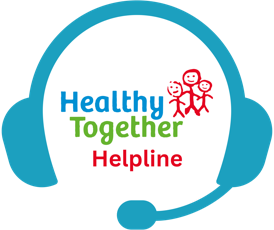Pre-eclampsia is a condition that affects some pregnancies, usually during the second half of pregnancy. Early signs of pre-eclampsia include high blood pressure (hypertension) and protein in your wee (proteinuria). While pre-eclampsia can be a serious condition for you and your baby, most people with pre-eclampsia make a full recovery and their babies are healthy.
In some cases, pre-eclampsia can cause a sudden, rapid rise in blood pressure and cause serious complications. Babies of those who have pre-eclampsia tend to be smaller and are more likely to be born early. The cause(s) of pre-eclampsia is not known.
Look out for:
- Severe swelling of hands, feet or face
- Severe pain under the ribs
- Severe headaches
- Visual disturbances e.g. flashing lights
- Feeling/being sick
- Feeling unwell
If you have any of these symptoms, contact the Maternity Assessment Unit right away.


Useful links
Leicestershire Partnership NHS Trust is responsible for the writing, publishing and updating of the content on this page.

Leicestershire Partnership NHS Trust runs a confidential secure text messaging service for parents of children aged 0-19 years called Chat Health. The service operates Monday to Friday between 9am and 5pm, excluding bank holidays. All texts will be responded to by a public health nurse (health visitor/school nurse) within 24 hours. Outside of the service working hours, you’ll receive a message back to inform you that your text will be responded to once the line reopens.
-
Leicester City:
text
07520 615381 -
Leicestershire & Rutland:
text
07520 615382

Leicestershire Partnership NHS Trust runs the Healthy Together Helpline for parents and carers in Leicester, Leicestershire and Rutland. The Helpline’s qualified health and administrative professionals offer easy to access, safe and free advice, support and signposting. Calls are answered from 9am – 4.30pm on weekdays, excluding bank holidays. Calls are charged at the same rate as calling a standard landline number.
-
Leicester, Leicestershire & Rutland:
call 0300 300 3001

Should you require urgent health advice in the meantime, please contact your GP, visit an NHS walk-in centre or call NHS 111. For emergencies, dial 999 or visit A&E.








